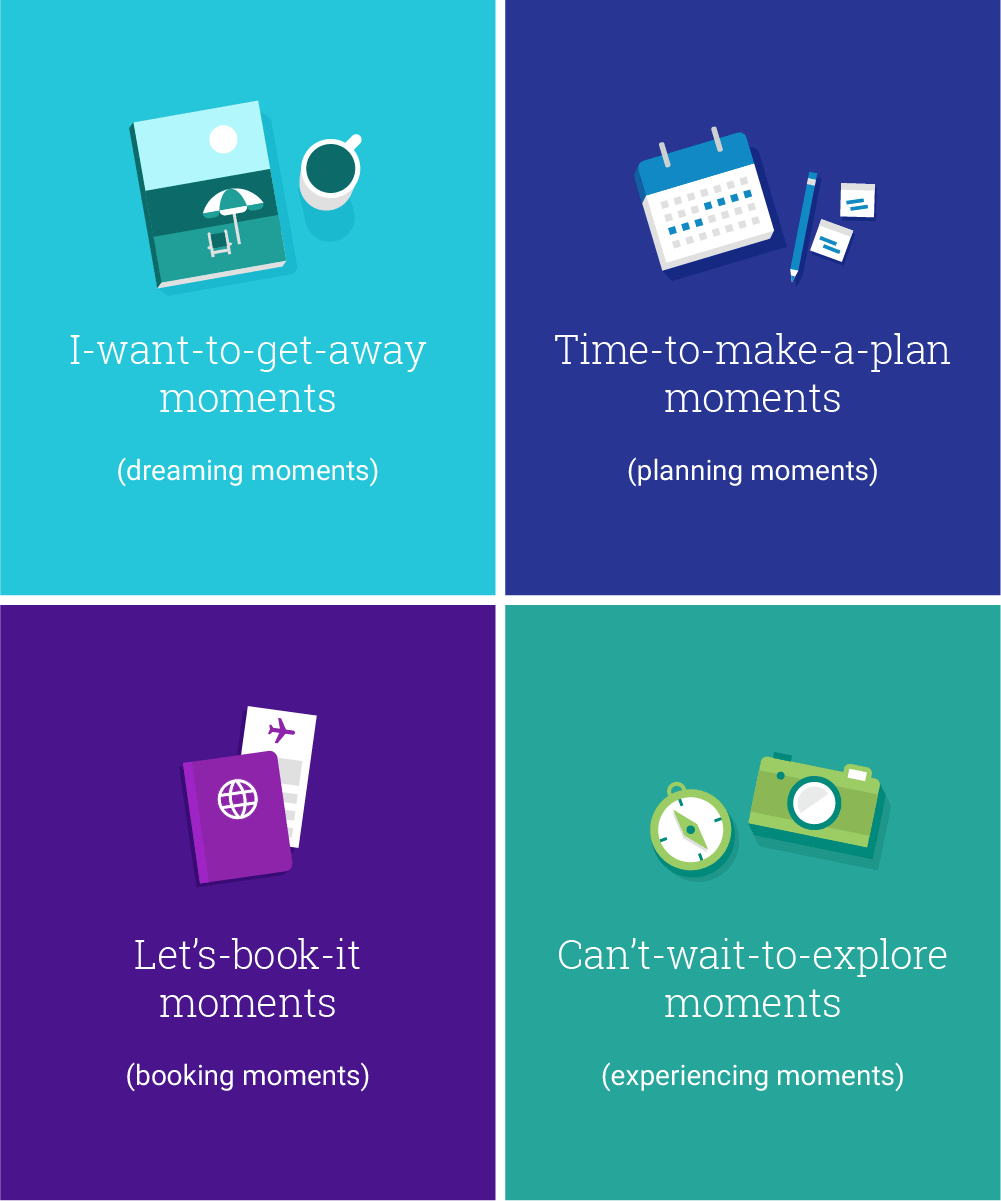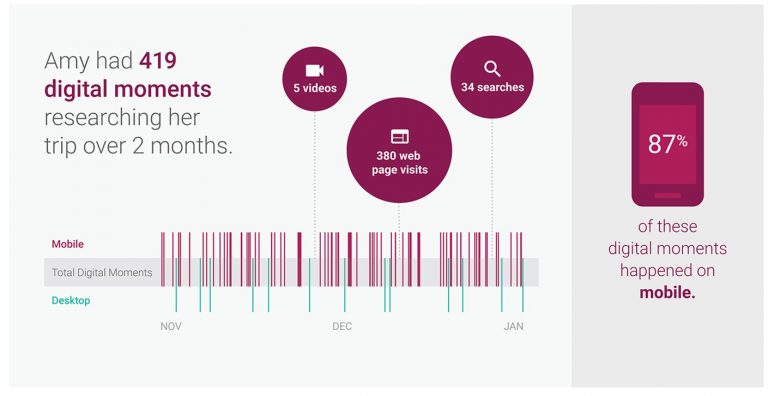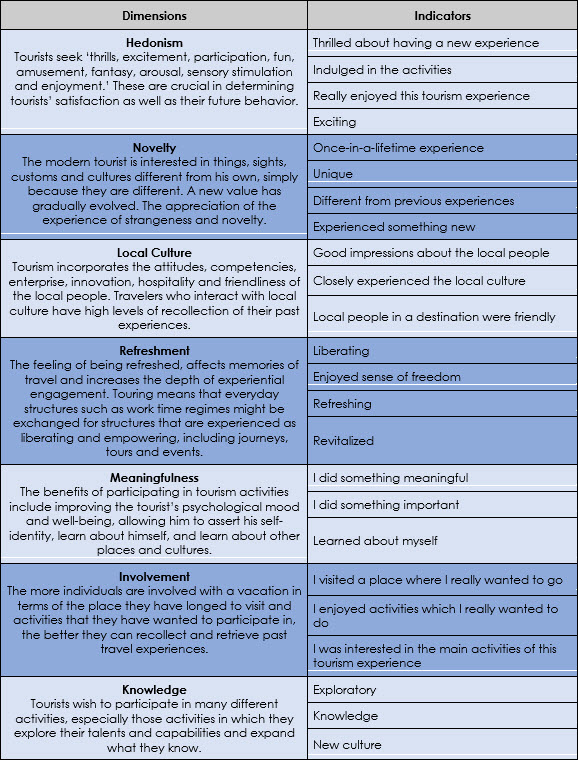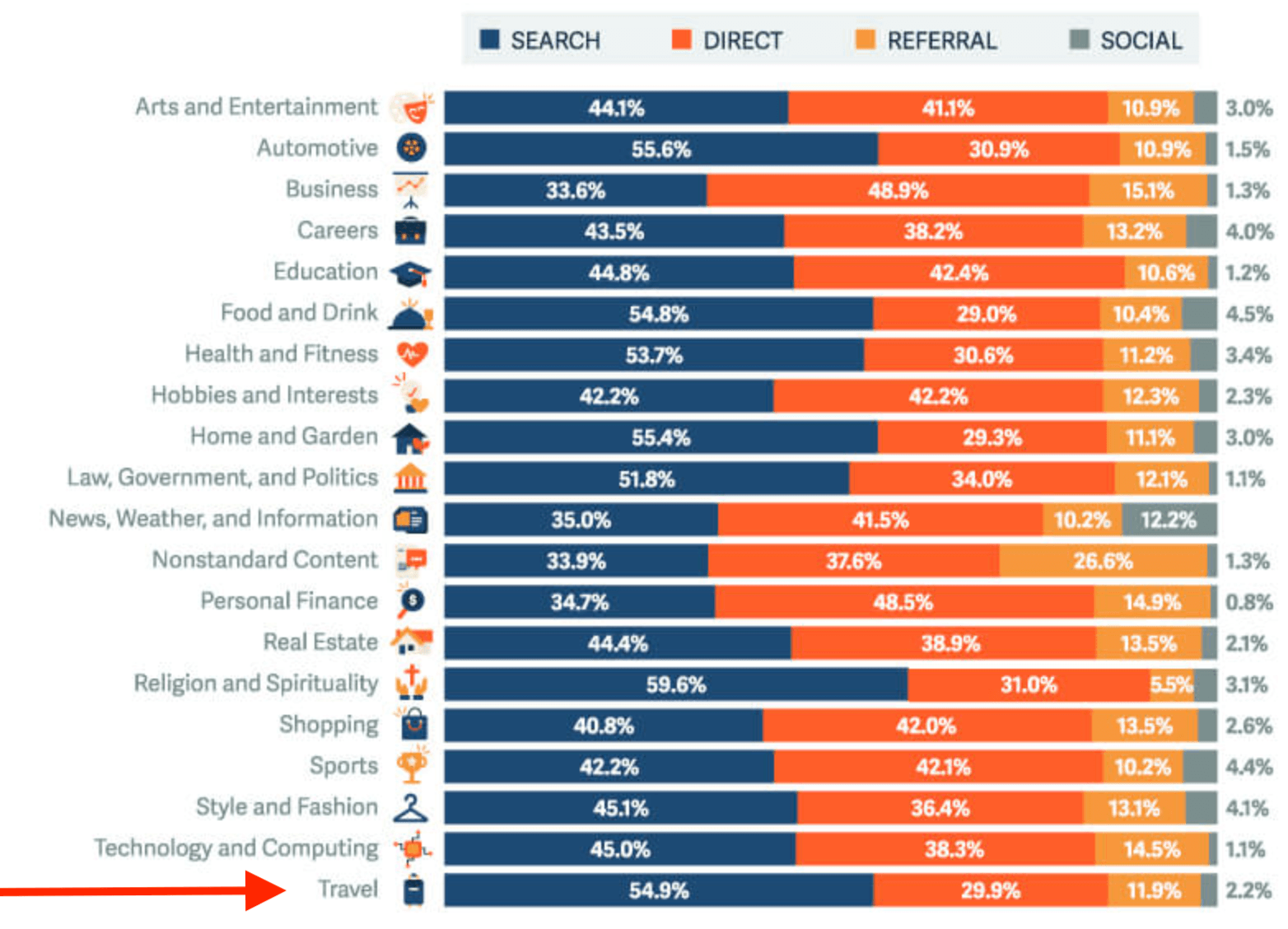SEO For Tourism
The tourism industry is like no other in the world.
There are as many reasons why people travel as there are tourists. With that in mind, SEO for tourism differs from optimization strategies used for other businesses. Tourism, whether for business or pleasure, is an emotive experience. Tapping into the emotional journey attracts more targeted traffic and leads by reaching out to those who crave such experiences.
Emotions and Memories Drive Traffic
Why is SEO for Tourism Important?
Marketers must learn how to rank a tourism website through organic search because it is the leading driver of site traffic. As marketers focus valuable time and resources on other channels, organic search continues to be the driving force behind successful tourism websites. People book vacations based on their memories, experiences, anticipation, and perception of a destination. Describing these situations using relevant keywords helps improve rankings and conversion rates. Find out how to fuse creativity with technology to craft travel content that drives traffic to your tourism site.
People are Interested in Experience
Does SEO for Tourism Go Beyond Technical?
The SEO process starts with technical processes based on analytics, research, and algorithms. But while technical tweaks and keywords are still crucial to the travel industry, it takes much more than being tech-savvy to soar to the top and get attention. Travel is a highly competitive industry which depends on inspiring emotional reactions and desires in potential customers. SEO technology needs to work hand-in-hand with emotive content to drive results.
A traveler’s emotions have a significant impact on how they search for a vacation and the ways a tourism brand should tackle optimization. SEO branding helps tourism companies build recognition and trust, so customers feel comfortable taking action. Search engine rankings improve, making it easy for customers to find content that reflects what they want to experience on vacation. Optimized words and phrases are peppered into the content to attract search engines and interested readers.
In the three months prior to booking a trip, there are three times more experiences searches than hotel searches. Additionally, there are a whopping eight times more experiences searches than air flight searches. People are more interested in the experiences they desire than getting details about the basic travel arrangements, such as accommodations and transportation. Savvy marketers recognize this opportunity, striving to deliver compelling content that tells a story with calls to action that make them book now.

Get in the Moment
Are Micro-Moments Important for Tourism SEO?
The magical moments of travel create memories people treasure – and want to recreate -for a lifetime. Google has identified micro-moments during the search journey of planning travel excursions. Being present in these micro-moments helps build a brand’s share of voice in these unique travel experiences. Beyond the experience itself, there are offshoot experiences that make memories like no others.
For example, destination brands should appear in search results for those moments when a traveler wants to get away. The person is dreaming of where they want to go and what they could do there. An example could be “mountain skiing” for a popular winter travel destination. Travel agents and professionals are masters of creating experiences that define the unforgettable micro-moments people treasure – and talk about – for years to come.
Micro-moments can add up to memorable tourism experiences (MTEs), the flashbulb memories that are vivid and lasting. Positive MTE is a better indicator than word of mouth, revisit intention, and satisfaction for brand loyalty. Sharing stories, opportunities, and information about potential MTEs entices travelers to book a trip and experience these things themselves. Stories can be adventurous, funny, informative – the goal is to get your target audience to take action and have these experiences themselves. SEO continues when happy travelers write reviews and share their MTEs.

Emotional Keywords
How Does Anticipation help Tourism SEO?
Anticipation is the excitement and curiosity people feel about a potential travel excursion. SEO marketing research has revealed that anticipation helps to make a travel experience more memorable. To build anticipation, marketers identify the emotional triggers that can make travel unforgettable. Content is created using emotional keywords to build a sense of excitement during the typical travel search process.
To create lasting memories, a traveler’s journey should start before the experience happens. MTEs are enhanced by anticipation. MTEs are based on hedonism, local culture, involvement, refreshment, novelty, meaningfulness, and knowledge. Experiential content shares an interesting story of a destination, helping travelers imagine themselves in an irresistible setting. Stories focus on gratification, native food and customers, new experiences, and historical and informational settings. People who crave these MTEs will be ready to book once they read the content.
Crafting stories that resonate with readers helps them become immersed in a destination before visiting it. Plus, because their initial experience was through branded content, the memories will be connected to the brand itself. This can help increase revisit rates, a crucial source of revenue for travel companies. Beyond remembering the amazing travel experience, travelers remember the business that gave it to them.

The Front End and Back End
From the front end, travel companies want to lure readers with fantastic stories about incredible destinations and experiences. The content should be well-researched to answer the target audience’s questions and incorporate relevant short-tail and long-tail keywords and phrases to rank better on the search engines.
On the backend, SEO can encourage new visits by incorporating optimized MTE keyword categories into the titles and meta descriptions that appear in the search results. Using these emotive keywords on the back end can help increase click thru rates and improve user engagement.
Additionally, the intelligent use of emotion-inspiring keywords helps encourage new visits. Focusing on MTEs and building anticipation encourages visitors to click on the content and links to find out more. The World Tourism Organization revealed $1.5 trillion was spent on travel last year. You want your share. SEO is crucial, as digital travel sales around the globe increased 10.4 percent to $694.41 billion in 2018.
Data Proves it
Give Travelers What They Want
Data proves travelers search for experiences more than basic travel arrangements. Additionally, 90 percent of travelers expect a personalized experience when they book trips. And, high-income travelers prefer to spend their money on activities over a luxurious hotel suite. With all these travelers searching for experiences, how can a travel company get a share of this lucrative market?
The answer is organic traffic. According to BrightEdge, more than 40 percent of online revenue is captured by organic traffic. When it comes to driving traffic, there are no shortcuts to creating a researched, thoughtful SEO strategy focused on emotive and personalized travel content.
As the travel sector grows by leaps and bounds, it becomes increasingly important to give travelers exactly what they want and perform ongoing keyword research. SEO is never done, as relevance and intent continually change. Revising and refreshing existing content, titles, and metadata helps drive more organic traffic to a travel website by using assets a company already has.
Tactical SEO for Tourism Information
Embarking on an SEO campaign means familiarizing yourself with the common terminology used to describe optimization tactics. Knowing how to rank a travel website means considering each factor that has a measurable impact on search engine rankings, such as:
- On site optimization is the technology, schema, metadata, and content optimization done to a site
- Mobile first is the mobile version of a website used by Google as the source of truth for indexing and ranking
- User engagement is the time visitors spend on-site, bounce rate, and other factors used to create an engagement rate Google measures to rank a site
- Search accessibility refers to whether the disabled, spiders, and others can access a site quickly and accurately
- Content that exists onsite and offsite, brand-owned or co-created, organized in a topic/subtopic content hub with ongoing refreshes and updates
- Social media sites are high authority sites where travel companies can build a brand presence through sharing and interaction
- Brand authority refers to the band mentions, scheme authority, high-profile links, and other strategies used for branding
- Semantics are the keywords and semantically/contextually related words in site content for relevance
- Speed on site and page is driven by technical factors, compression, and content delivery, and site speed can dramatically impact SEO
- Type of search is content written for various types of search, such as products, voice, image, etc., which can differ greatly.
Once travel companies and marketers agree on the factors that matter to optimization, the process begins to build an SEO campaign with a goal, such as maximizing the exposure of the tours provided by tour operators. Several process elements are part of creating an SEO plan:
- Assess to understand the company’s goals and aspirations as well as audit the existing site situation
- Research Google and competitors to find marketing opportunities
- Evangelize to get cooperation and ownership, management, and stakeholders
- Plan to develop a strategy and set targets, then identify and recruit resources to execute
- Execute the plan to put it in action
- Measure and analyze the metrics and compare to targets
- Repeat as SEO is a constantly evolving process.
Enterprise tools are used to implement and execute SEO for tourism campaigns to ensure they are measurable, competitive, and manageable. Tools such as BrightEdge, Buzzsumo, Yext, and Google Analytics, Search Console, Tag Manager, and Keyword Planner are all fundamental to developing, executing, and measuring SEO campaigns.
The key to success is finding emotive opportunities and incorporating them into optimized content. Savvy marketing professionals perform an opportunity assessment to show travel businesses where there could be missed revenue opportunities. The process starts with discovery and a strategic workshop to find out the company goals, audience, content capabilities, and relationships to help strengthen branding.
Then multiple audits are conducted to understand the current landscape. Audits include technical SEO, keyword research, content, and backlinks. Travel experiences are also explored to determine which ones are best to promote. High-demand keywords are chosen and supported by specific, localized experience content.
Finally, the competitors are analyzed to determine what they are doing, and if you could be doing it better. What keywords are the competitors ranking for, and how can you get your market share? Measuring Share of Voice accurately assesses competitors for experiences to prioritize competition content marketing plans. Success is ultimately measured by key performance indicators and metrics that reveal how well a travel company is doing yesterday and today.
Because SEO for tourism is a specific niche, it is crucial to work with a team of travel SEO specialists. Optimization strategies are based on a myriad of factors to ensure content is both keyword-rich and emotive. The travel site is analyzed to ensure it functions optimally. All factors are considered to improve brand reputation, expand online presence and improve conversion rates.
Travel executives have unlimited opportunities to create MTEs and develop optimized content to attract travelers to their tours. Smart research reveals opportunities based on search volume, competitor analysis, and other crucial factors. Often marketing teams enlist the assistance of a stellar SEO team to help them find and capitalize on missed opportunities to generate revenue and corner a greater market share.
Are you feeling overwhelmed by the concept of developing such detailed content? Let our experts walk you and your team through the process. Learn how to rank a travel website from the people who know how to do it – Galileo Tech Media. We are proud to serve some of the most respected travel leaders in the world, helping them to achieve – or exceed – their goals.
For a limited time, Galileo is offering a Complimentary SEO Opportunity Assessment to review your current SEO status, compare you with your fiercest competitors, and calculate your potential gains in immediate and relevant site traffic from search engines.


